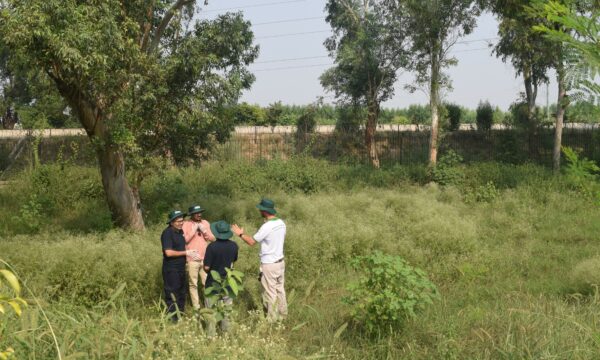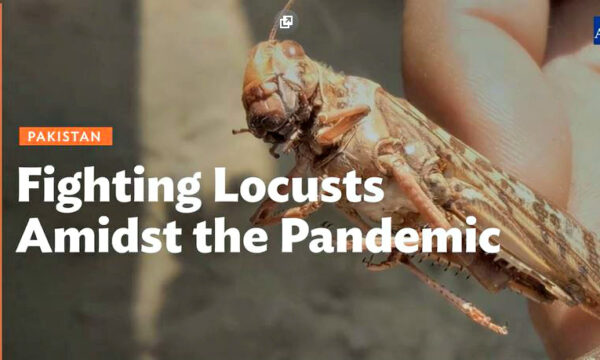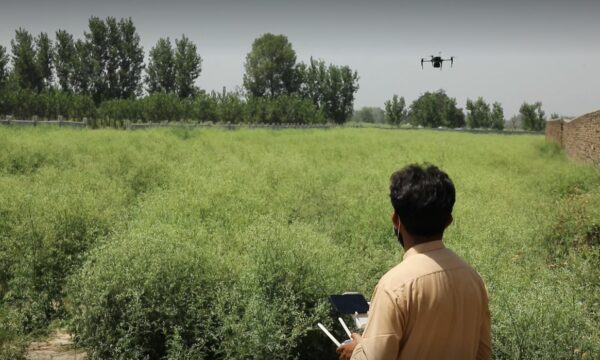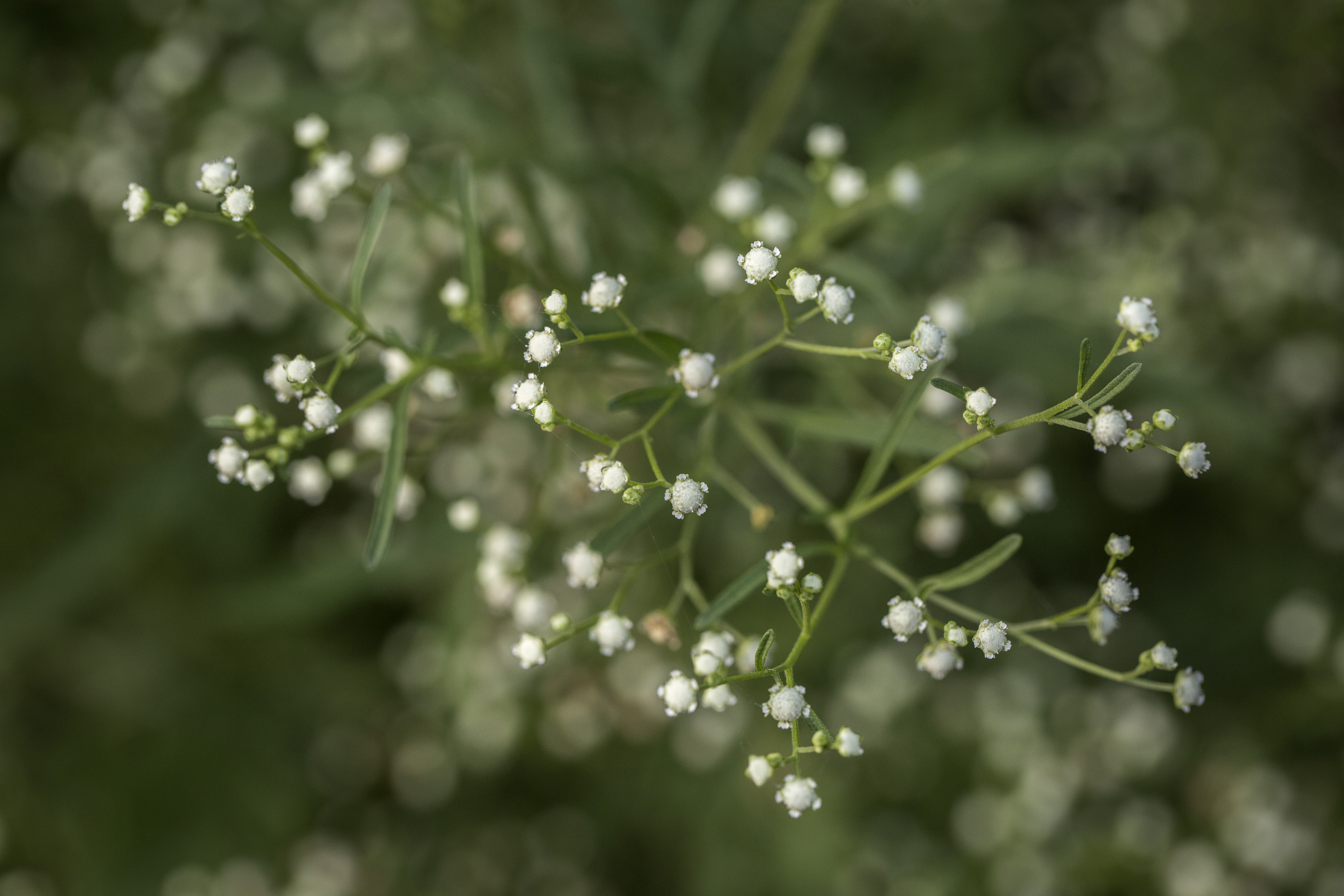
Parthenium is an annual herb that aggressively colonises disturbed sites
A training session was recently organized by CABI in Pakistan on the identification and management of Parthenium Hysterophorous to a variety of stakeholders. These activities were part of the Parthenium awareness campaign which CABI has launched under Action on Invasives, in the Sheikhupura district (Pilot district), Punjab focusing particularly on rural communities.
There is imminent need to build the capacity of administrators and field staff of relevant departments and align them with the Parthenium awareness campaign interventions to create a better information source for communities and residents in the area. In light of this, field staff from the Agriculture Extension Department, veterinary officers from the Livestock Department and nominees from water user associations managed by On Farm Water Management Department were trained in respective workshops. Each of these departments are well-connected with the community and are a reliable source of information for them, and therefore able to play a vital role in managing Parthenium weed.
Training was carried out by formal presentations from CABI staff members. Participants were briefed about issues and impact of Parthenium weed on human and livestock health plus environment and agricultural production. Participants were updated about previous work and current status of activities within the Parthenium weed management awareness campaign.

An extract from the information poster on the dangers of Parthenium
Mr. Abdul Rehman, Deputy Director for Programmes, CABI Pakistan gave a detailed overview of Parthenium hysterophorus. He told the participants it was important to be able to identify Parthenium as there are several other weeds which look very similar and described how to distinguish between them. He outlined the plant’s origin, its distribution, germination stages and its negative impacts. He added that Parthenium weed is highly dangerous for our future and is having a harmful impact on crops, livestock and humans – almost 40% of crop yields will be reduced if this weed is not properly managed. Additionally, this weed significantly impacts livestock by affecting grazing land, animal health, milk and meat quality; and for humans it causes various diseases like asthma, skin diseases, dermatitis, and allergies. Mr Rehman informed participants that there are several methods in which to control this weed e.g. manual, biological and cultural control, and CABI is working on a scientific solution to manage it. He encouraged the participants to make the community aware of the weed and to root it out where they see it.
Dr. Umair Safdar, Development Communication Executive, CABI Pakistan shared a communications strategy and informed the participants that these training sessions are amongst the first phase of larger mass awareness campaign. He encouraged the participants to share their ideas and suggestions for effective execution of campaign in Sheikhupura.
The training was concluded with a vote of thanks to all meeting participants for their kind interest and valued feedback by the CABI Pakistan team.
Related News & Blogs
All is not quite what it seems in the fight against the noxious Parthenium weed
Scientists are busy investigating effective safer-to-use, and friendlier to the environment, biological control agents to fight one of the world’s most noxious invasive weeds – parthenium (Parthenium hysterophorus). Former CABI PhD student Dr Benno Aug…
6 March 2023







